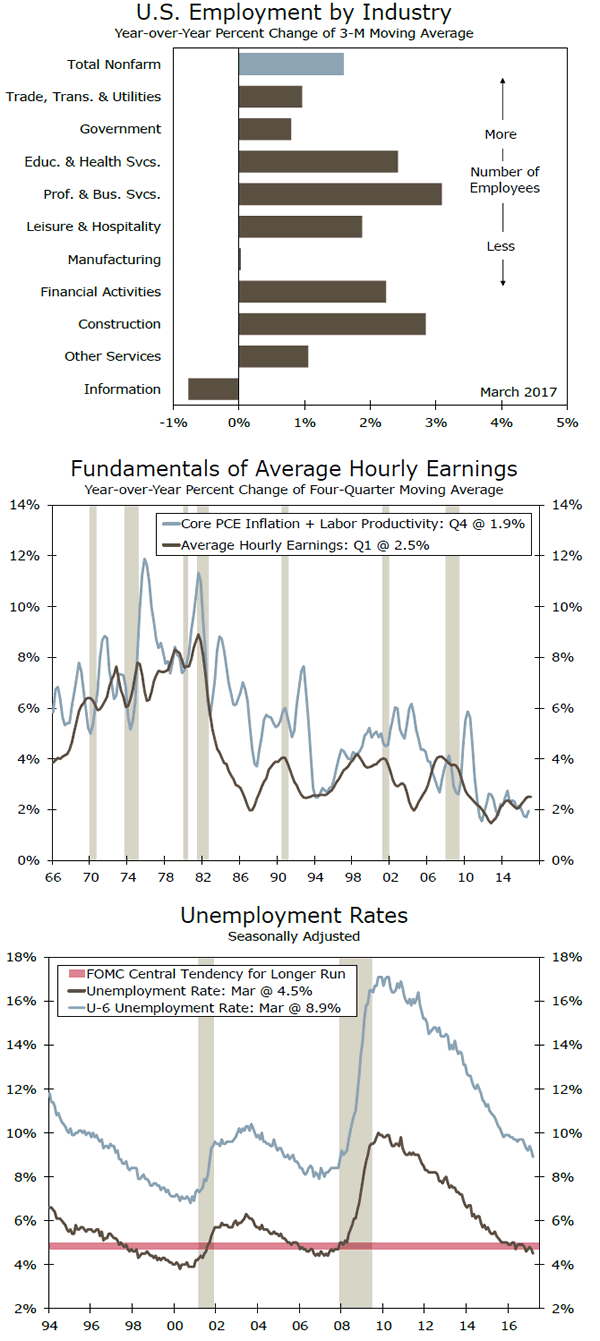Job gains were disappointing in March, primarily due to retail trade restructuring and some weather effects. Wage gains are consistent with labor productivity and inflation trends. FOMC on track for June.
Jobs Up 98,000 in March: One-off Weakness in 2017
Nonfarm payrolls rose a disappointing 98,000 in March, lowering the three-month average to 178,000 jobs. Over the past five years, there has been one month of weakness in jobs in the first quarter of the year, and three of those cases came in March.
Hiring in the services sector slowed sharply in March, with employers adding only 61,000 new positions-less than half the pace of the prior two months. Weakness was particularly noted in retail and likely reflects the impact of ongoing restructuring in that sector as well as difficulty adjusting for the timing of the Easter holiday. Retail has now been down sharply two months in a row.
In the goods sector, manufacturing employment posted another monthly gain (up 11,000), while mining employment continued its comeback as commodity prices have improved. Hiring in construction, however, was up just 6,000 jobs, likely reflecting some seasonal payback.
Wages: Not an Isolated Number but Part of the Economic System
Wages reflect the economic fundamentals of the labor market, and those fundamentals include productivity and inflation. Wages are not "low" arbitrarily as if some evil force keeps wages low.
As illustrated in the middle graph, wage growth tracks the trend in labor productivity growth and inflation over the past 50 years. This makes economic sense since nominal wage growth over the long-run should be the product of the growth in a worker’s output per hour worked and the change in the price level. During the current cycle, analysts have repeatedly commented on low productivity, and inflation has been persistently below the FOMC’s target of two percent. Moreover, nominal wage gains have also been real gains in several sectors such as information, manufacturing, wholesale trade and the private sector in general, where nominal wage growth has exceeded the pace of inflation as measured by the Fed’s benchmark, the PCE deflator.
Rough Time to Be Part of the Establishment
Strength in the household survey in March suggests the payroll survey likely exaggerates any weakening in the labor market. The unemployment rate fell to a new cycle low of 4.5 percent. Encouragingly, the decline was driven entirely by more workers finding employment while the participation rate held steady. Broader measures of labor market slack also signaled that the labor market is tightening, with the U-6 unemployment rate, which includes people working part-time for economic reasons, falling to 8.9 percent. With the household survey failing to corroborate the weak payroll numbers, this report does not deter our current expectation for the Fed to hike again in June.

